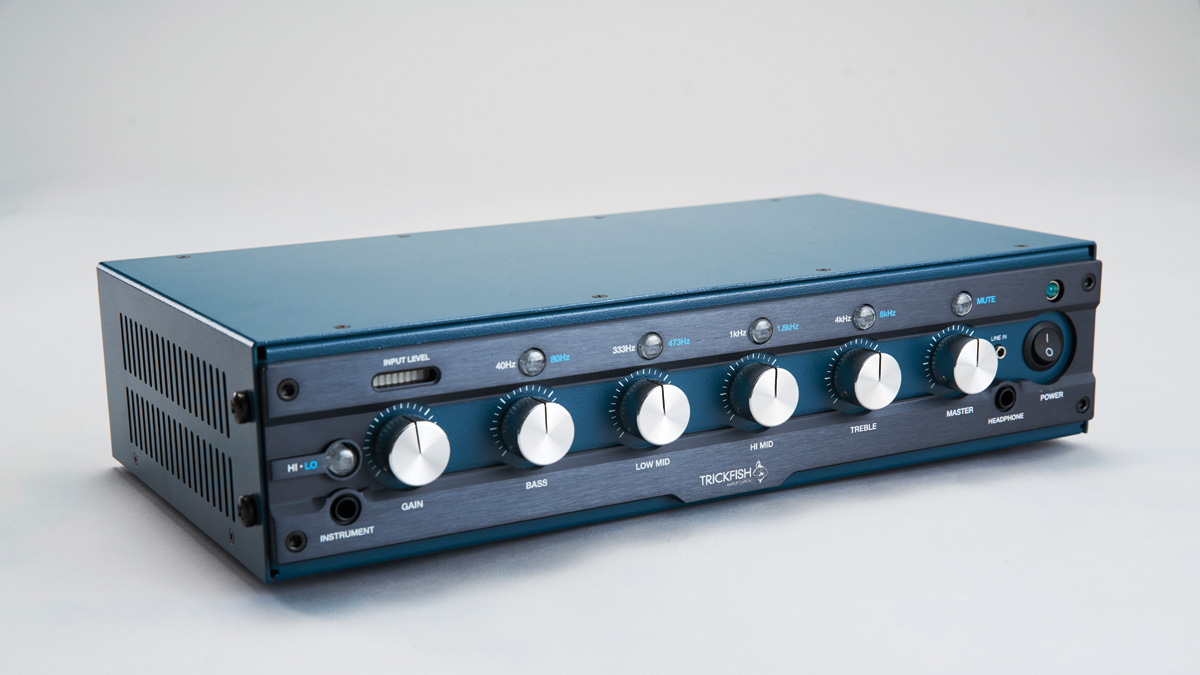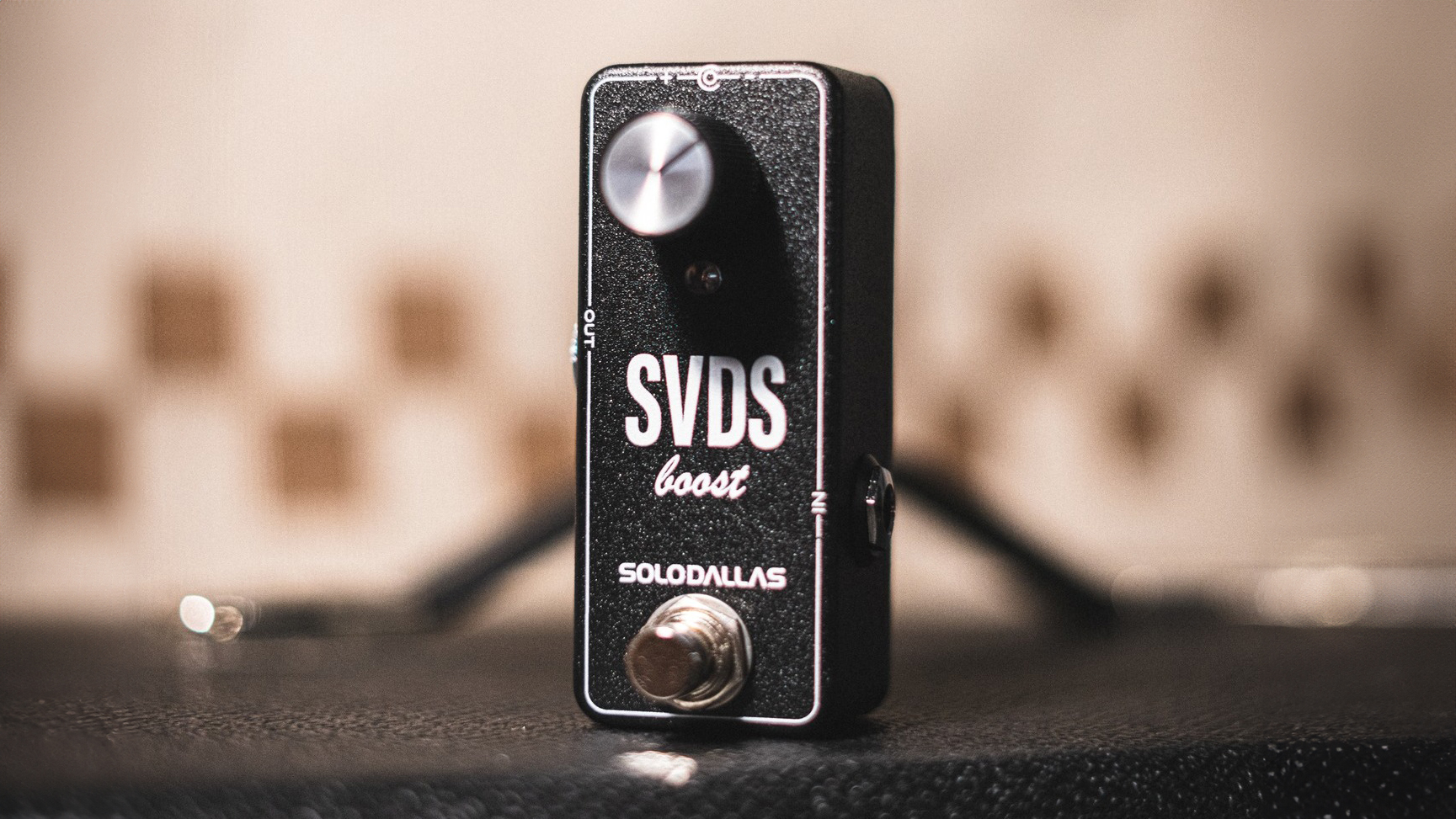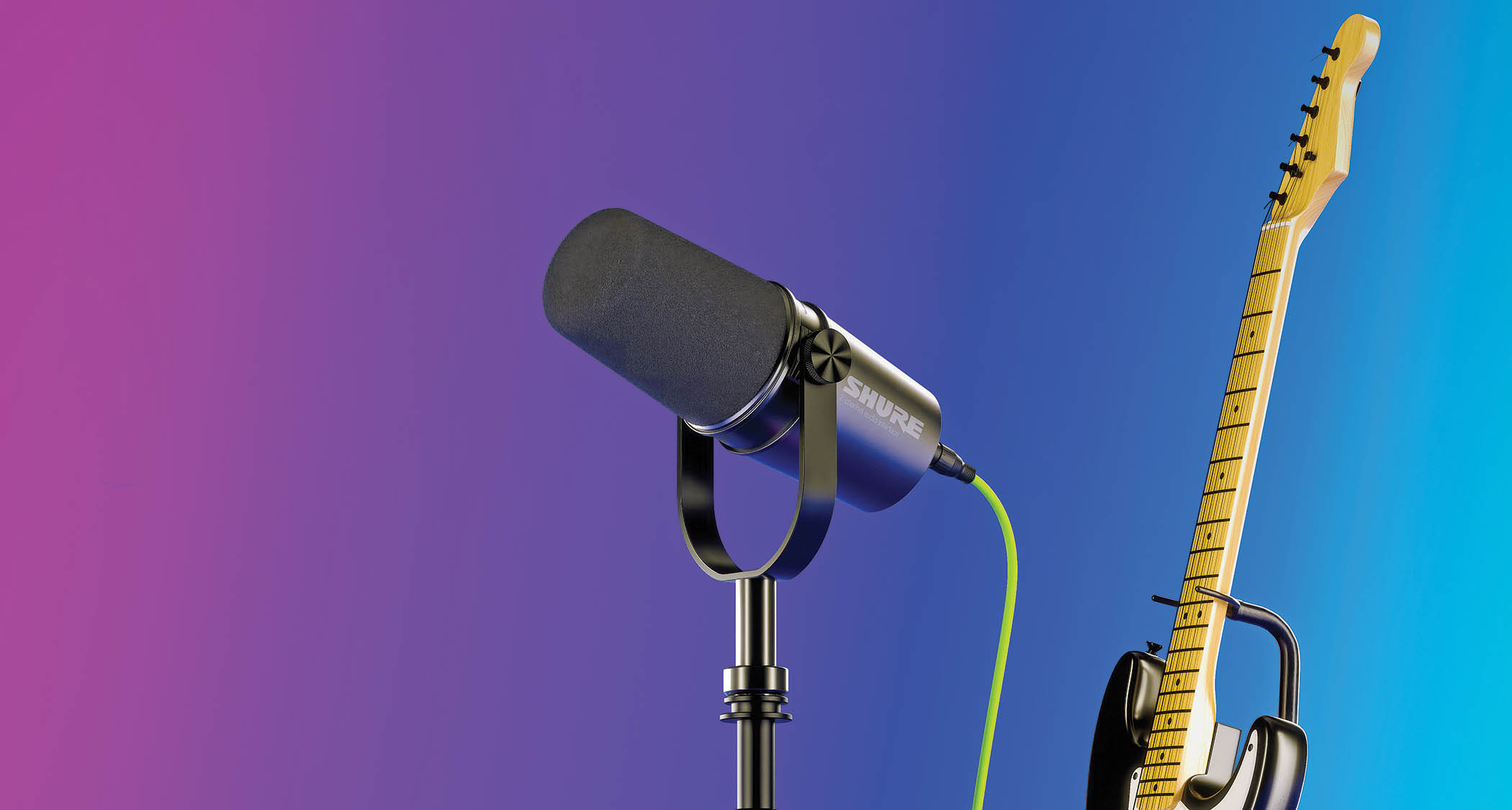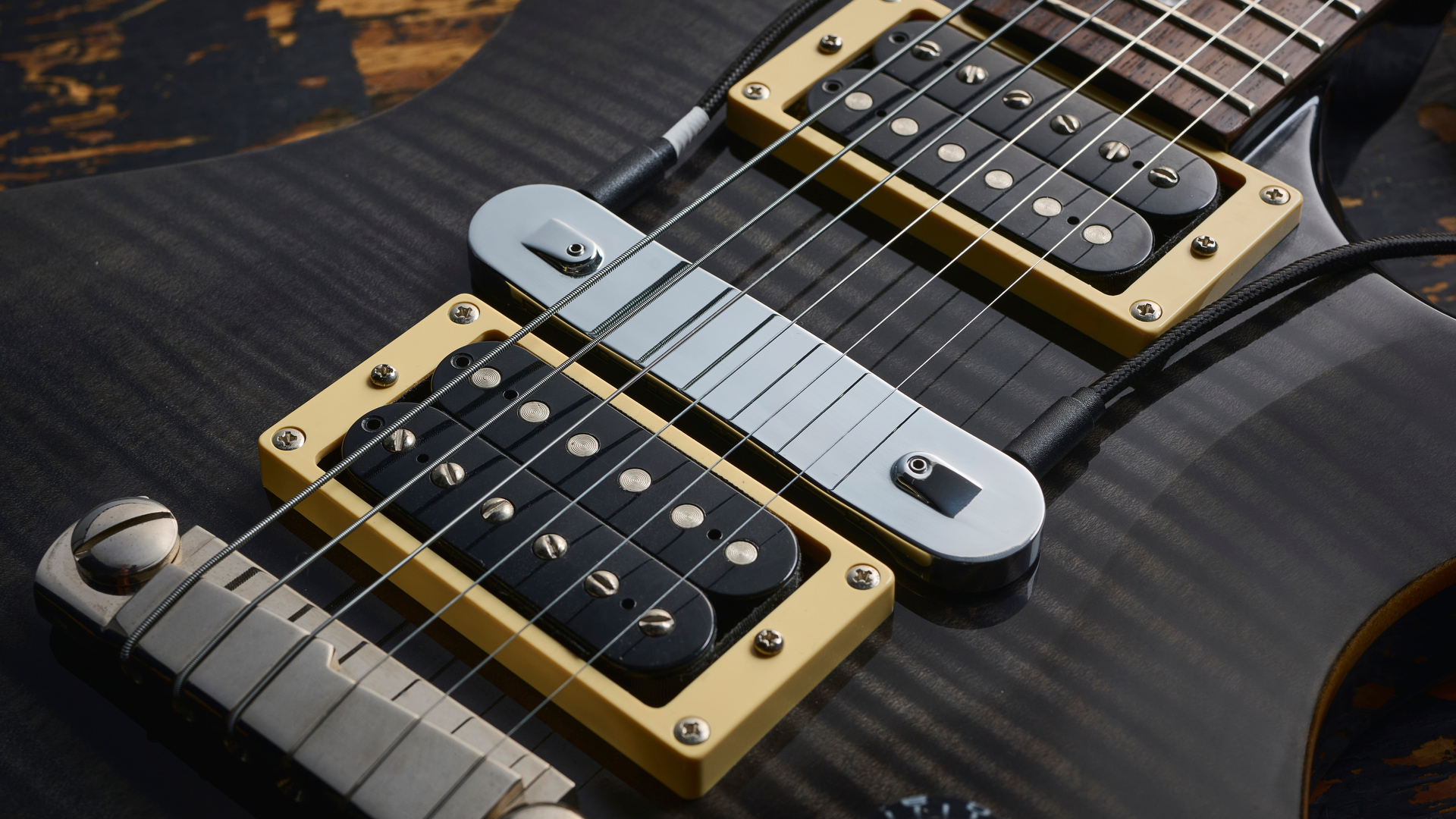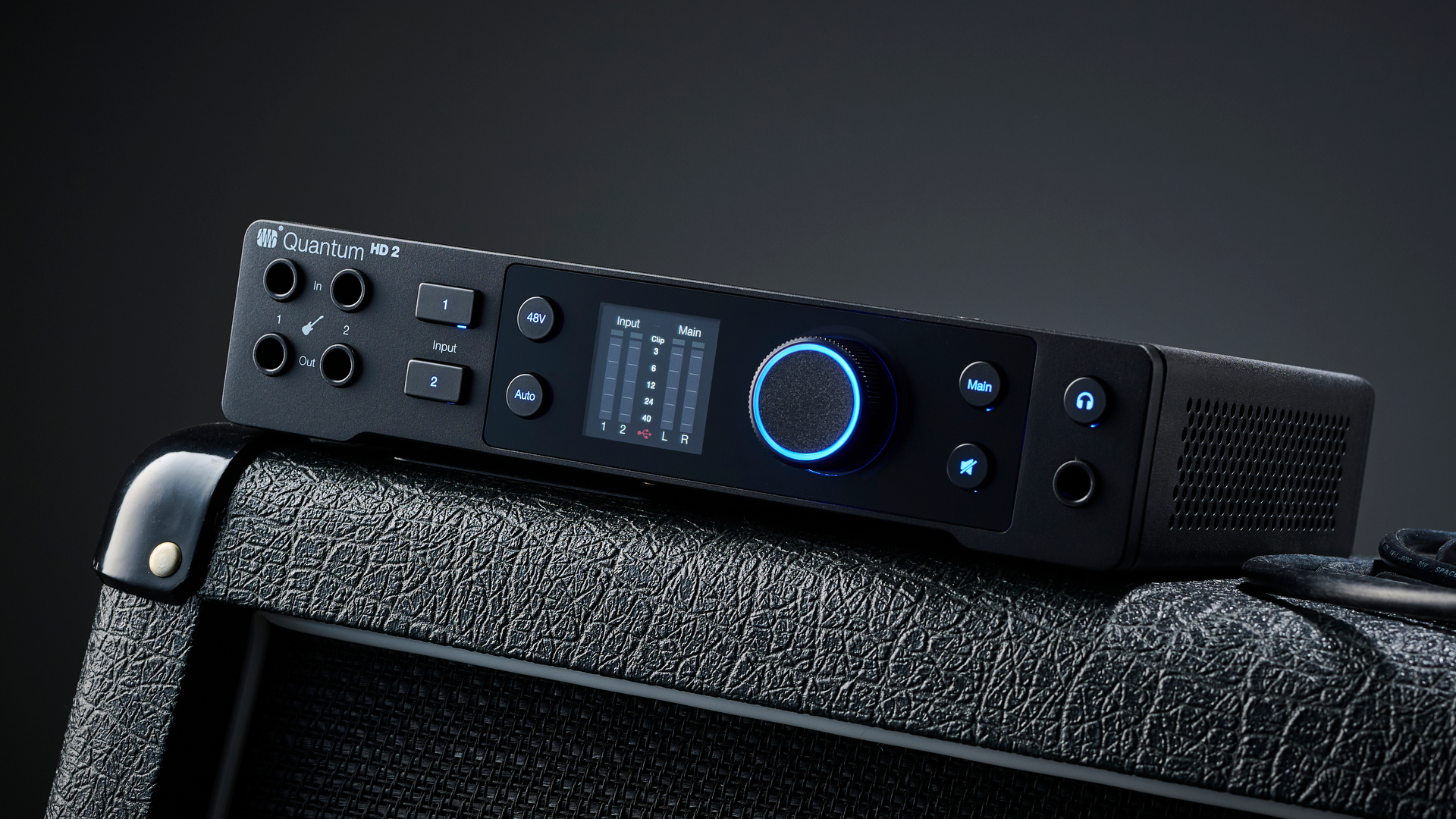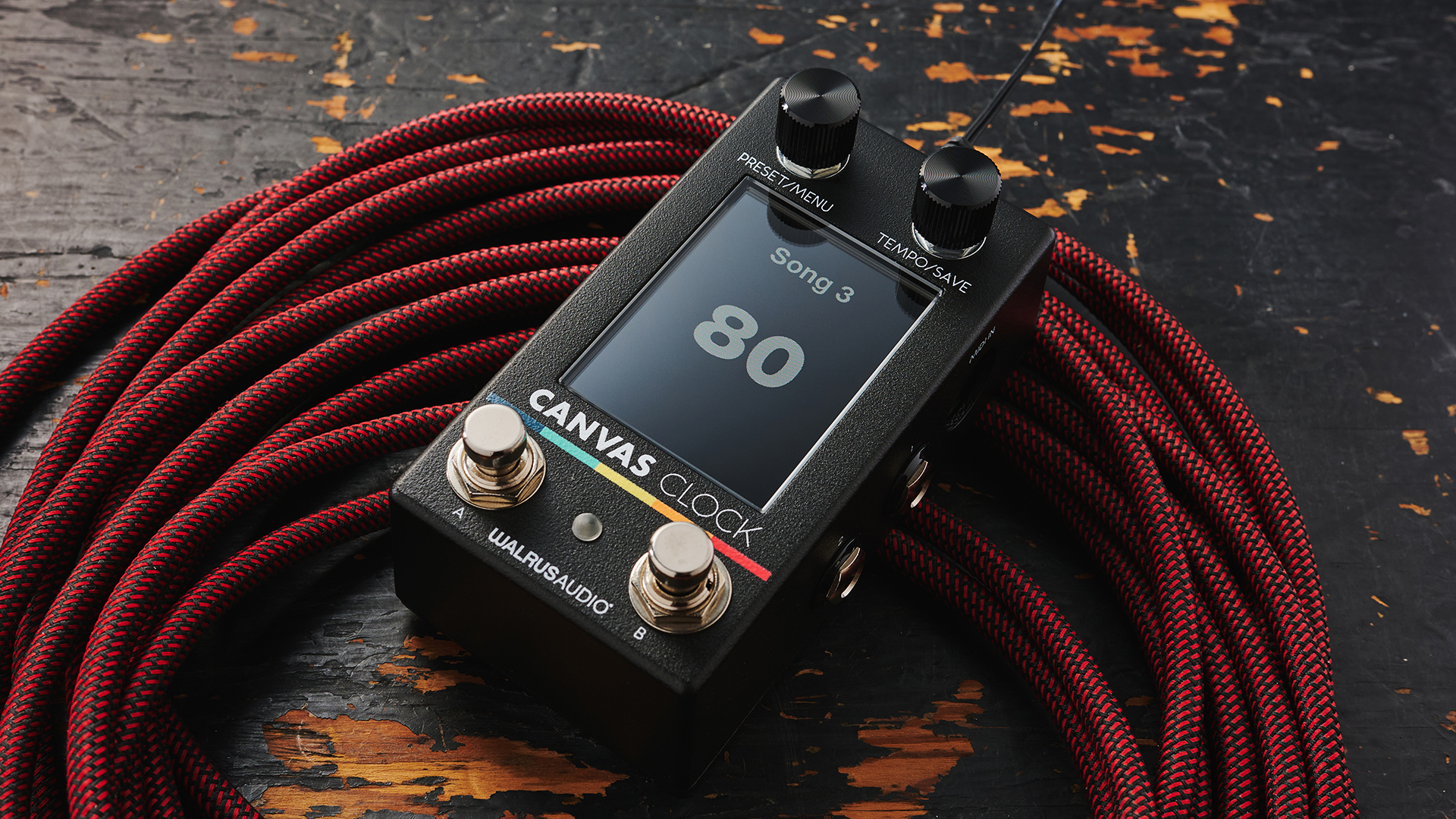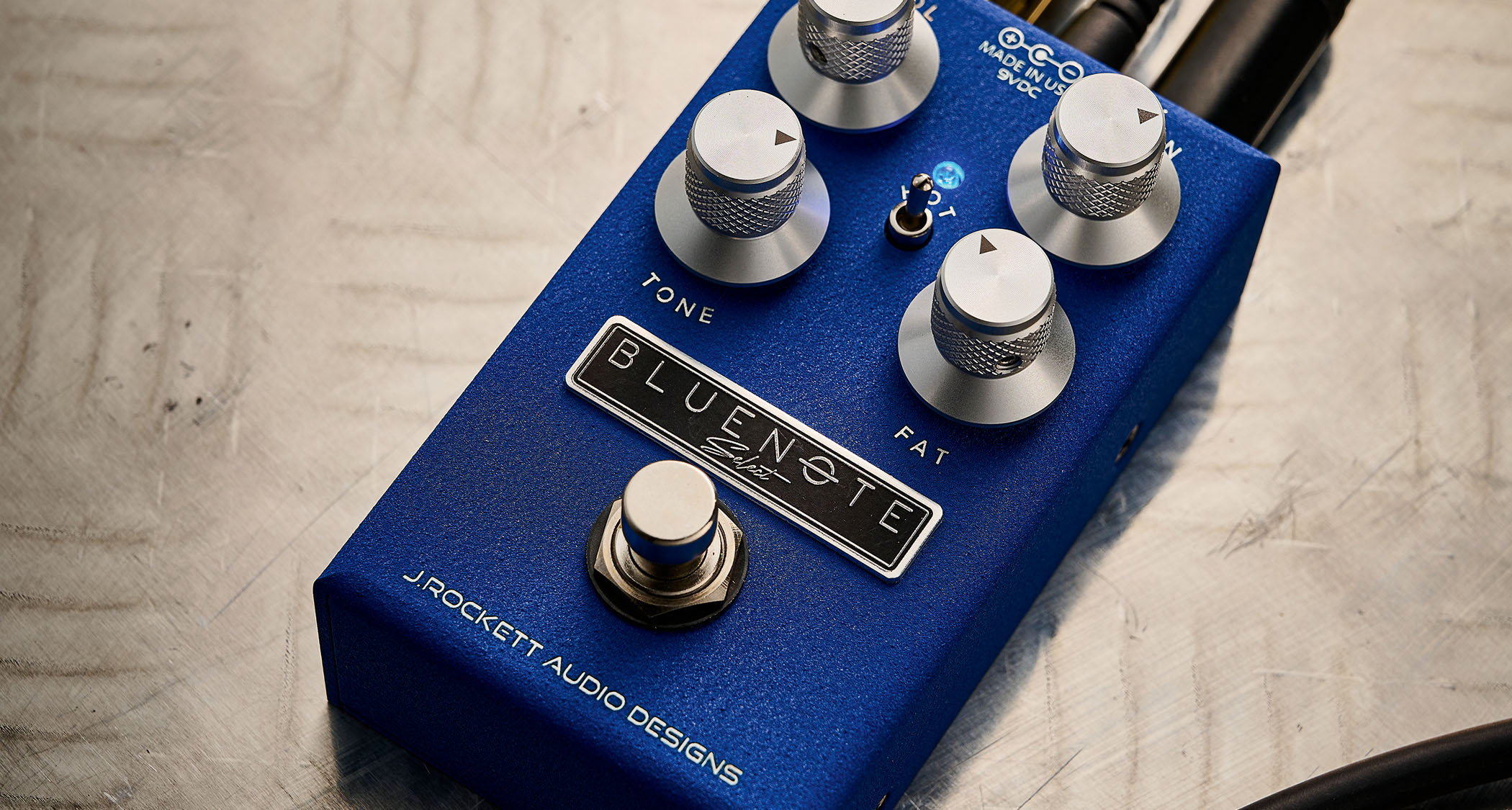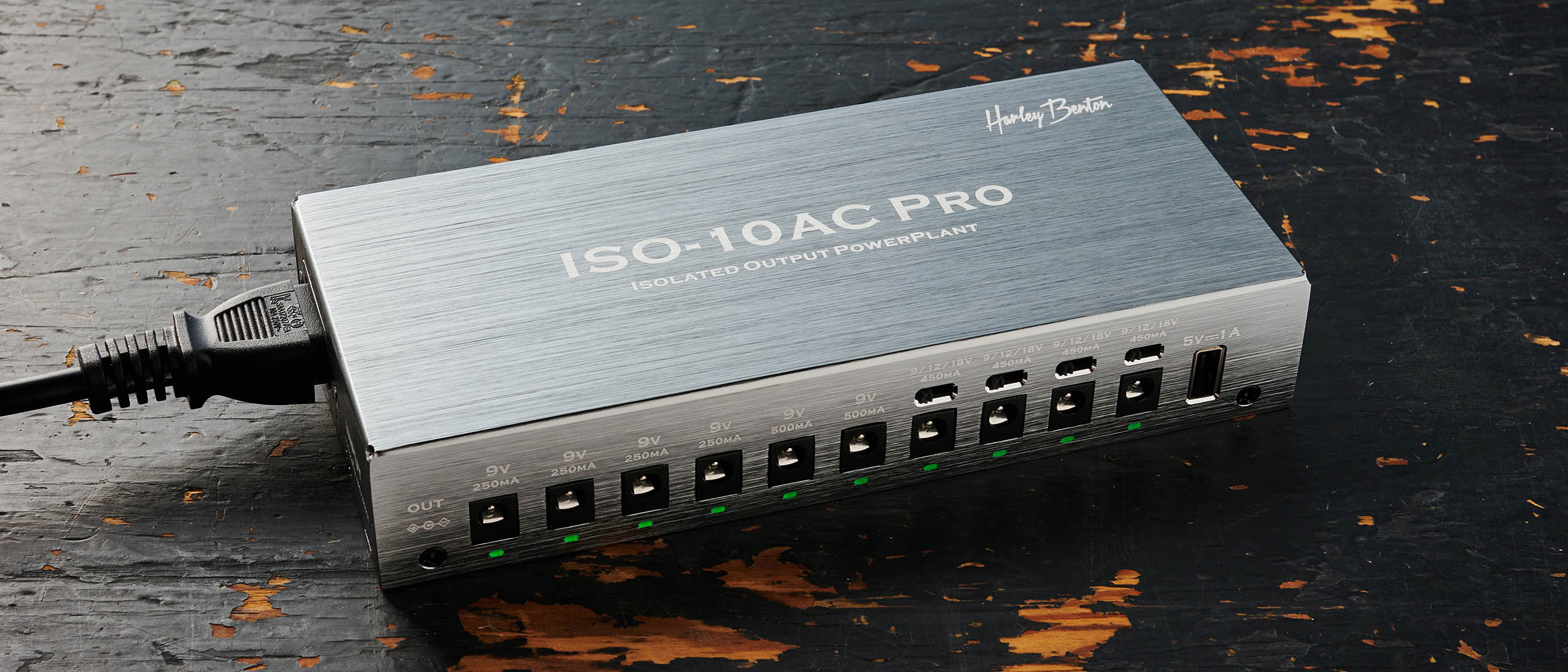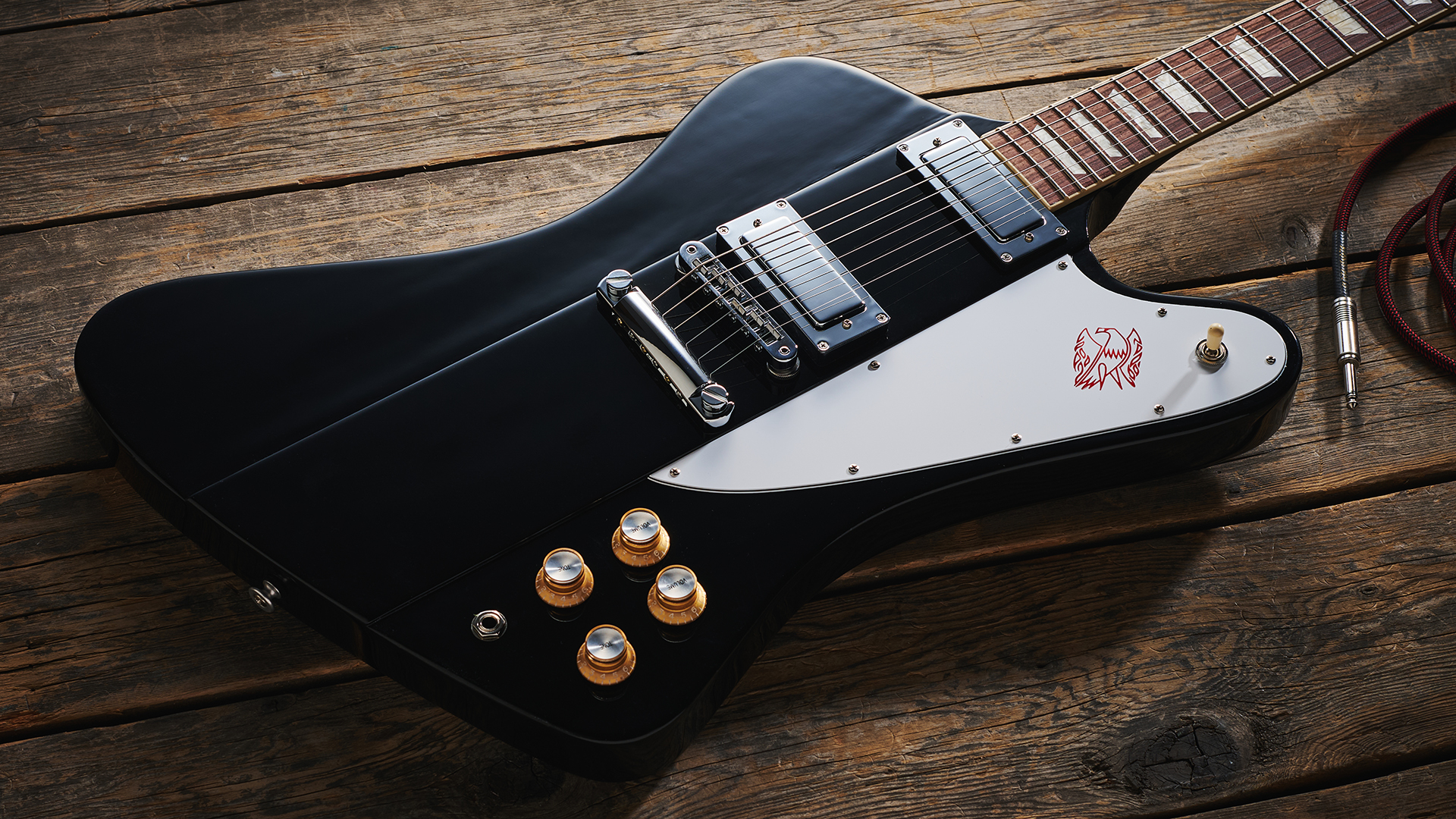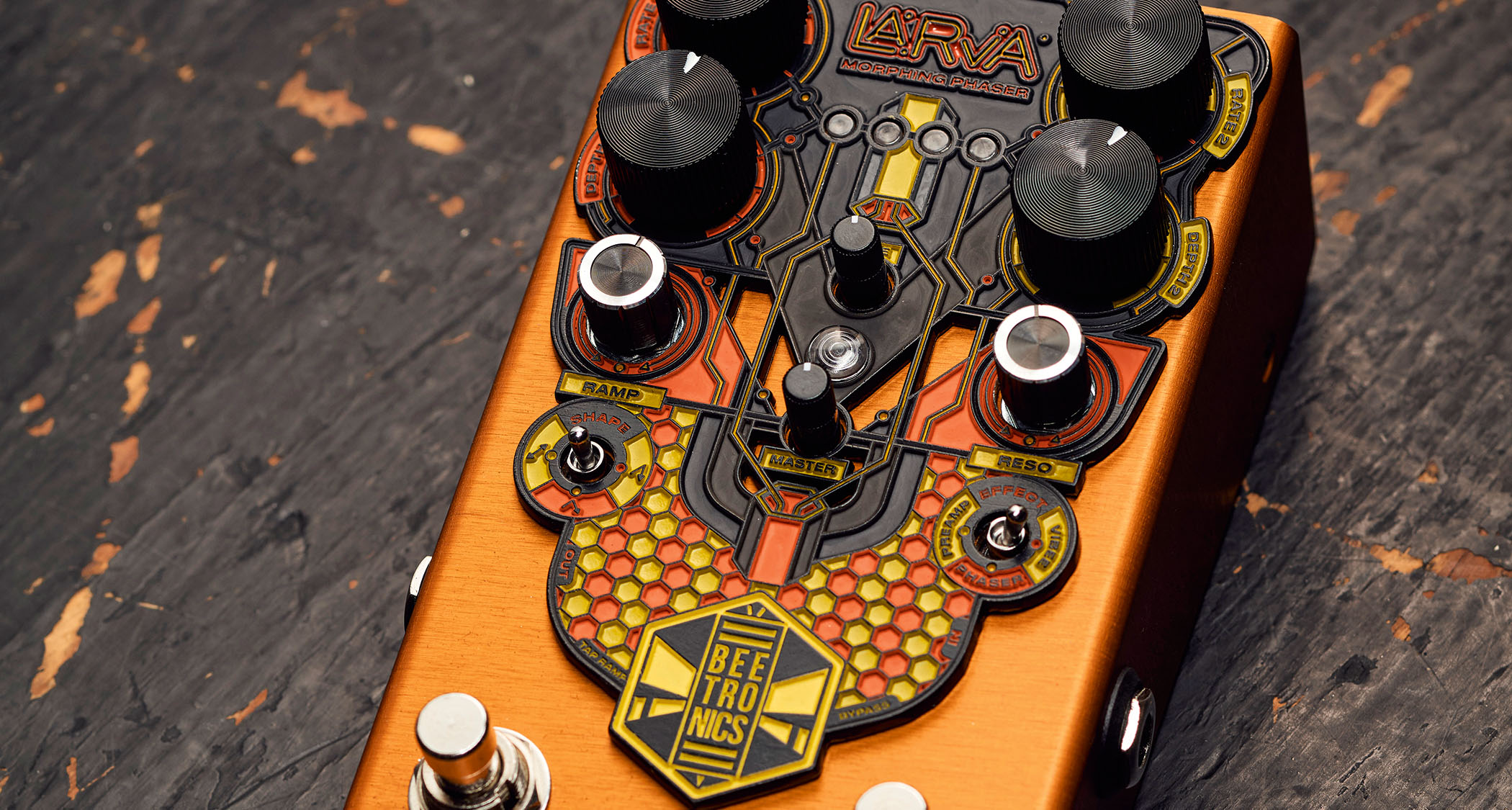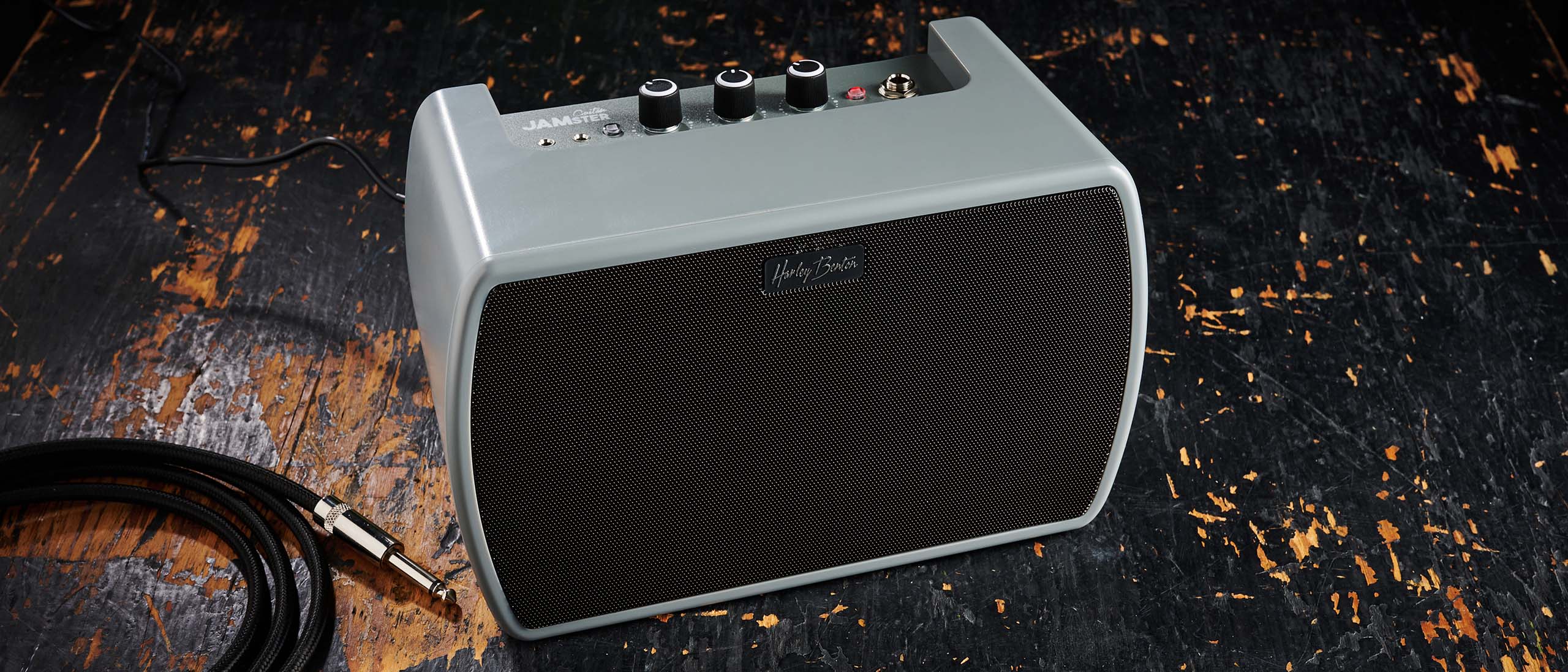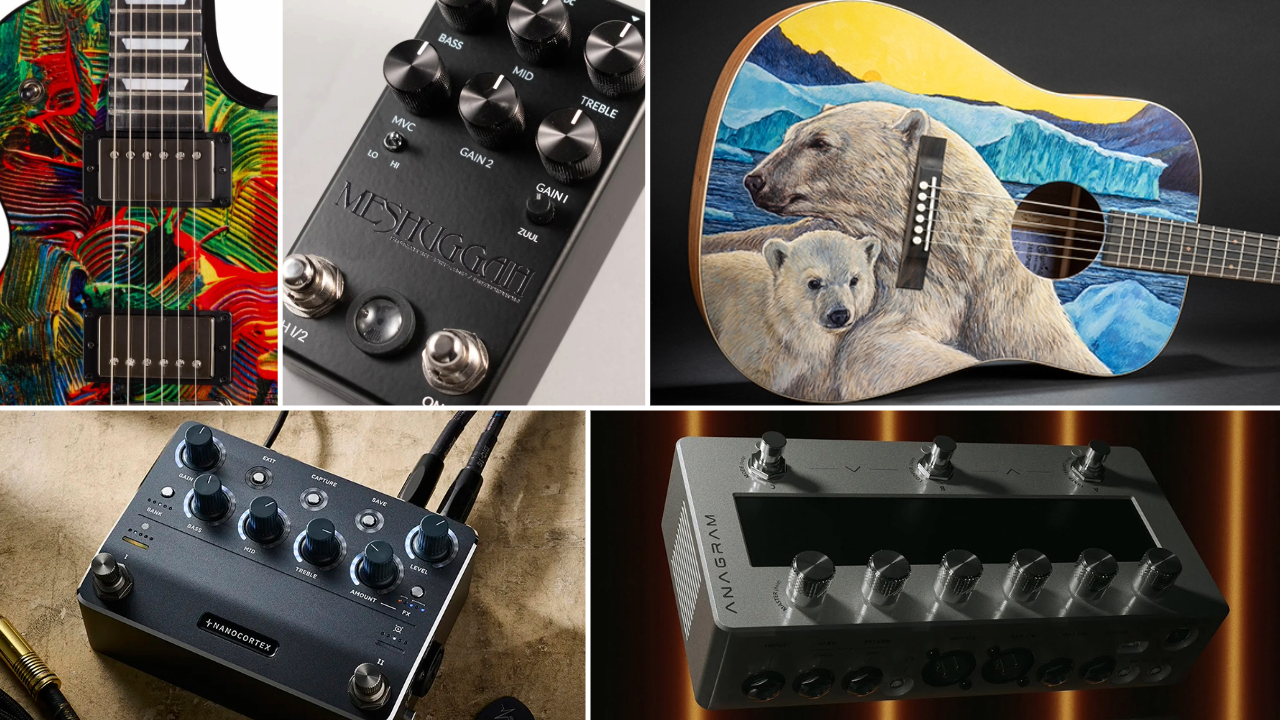Guitar World Verdict
A fully-featured, powerful amp and a highly portable cab, this is impressive gear from Trickfish, offering you comprehensive control over your EQ and a very classy performance.
Pros
- +
A fine array of tones.
- +
Keenly priced.
- +
Well laid-out control panel.
- +
Quiet performance from the amp.
Cons
- -
A lot of competition – and the cab can only do so much.
You can trust Guitar World
Originally founded in 2014, Trickfish have begun to make some serious inroads into the amplification market over the past few years, and this Bullhead 1K amplifier is the brand’s flagship model.
Built in the USA, with input from renowned designer Mike Pope towards its design, this amp and the supplied 1x12 cabinet claim to offer supreme tonal sculpting coupled with noiseless performance. As one might expect, gear of this quality isn’t cheap – but it’s not out of reach, either. So what do you get for your outlay?
Build Quality
Both units suggest simplicity and quality: the cabinet speaks for itself, while the amp is simply laid out, with side venting on either side of the turquoise and black aluminium chassis.
The control set is fairly obvious, with a four-band EQ section, selectable shelved frequencies and all of the expected connections front and back. The controls are sizeable, so there’s no chance of getting lost under poor stage lighting and although the amp features some illuminating LEDs for the frequency selector buttons, they don’t detract from what is a classy-looking unit.
The brushed silver controls feel extremely solid and operate smoothly across the whole turn, which is reassuring. The Input Level indicator provides a point of reference with regard to the overall Gain level of your signal.
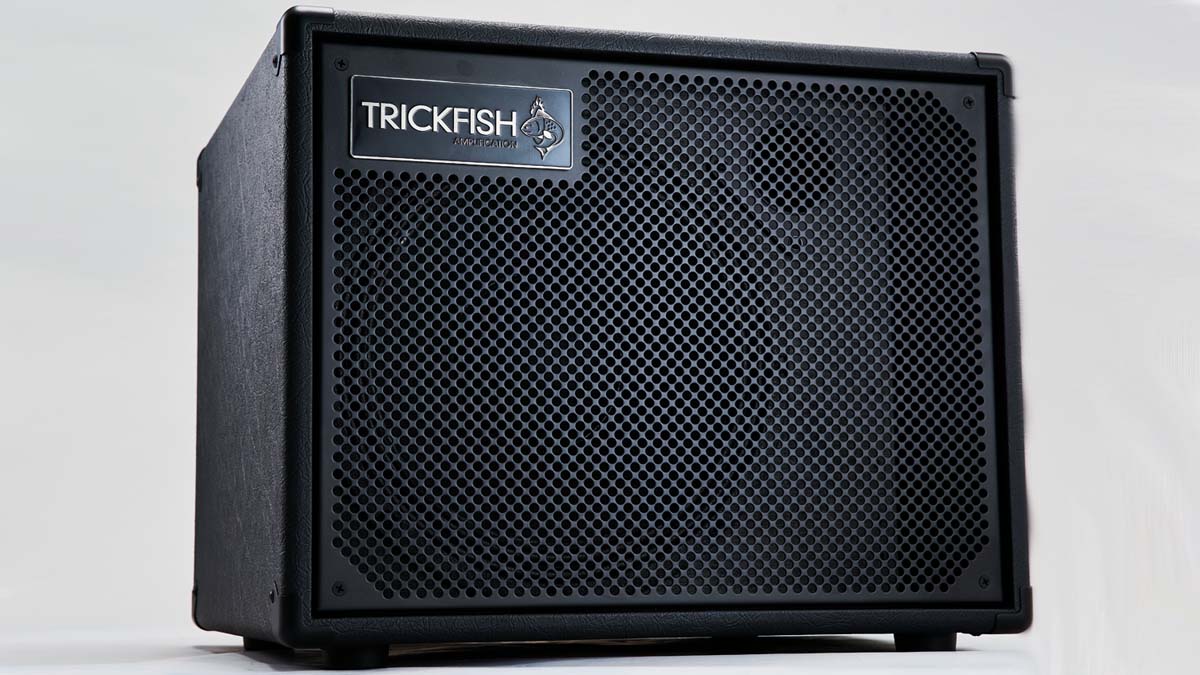
The TF-112 cabinet is made from Baltic birch and comes covered in sharkskin vinyl, complete with a 16-gauge steel grille, a recessed metal handle on the top of the cab for transportation, metal corners and detachable rubber feet. It’s a simple design, likely to be effective across the full frequency range, utilising a 12-inch Eminence Neodymium driver and a high-frequency horn.
When turning the amp on, the power-up sequence runs a test before switching the amp into Mute mode; this protects the attached speaker. Determine the hotness of your bass signal using the Hi/Lo selector, which offers a +/-9dB setting; set your Gain level using the Input Level indicator; and you’re ready to add EQ as required.
Sounds
With both the amp and cabinet set flat, the tone projects well, whether using passive or active instruments. The amp in particular is extremely quiet, with very little background or performance noise during operation. The basic tone is punchy without being excessive, and the bottom end is solidly defined, offering plenty of power and projection.
Bringing the high-frequency horn into play opens up all sorts of detail and added finesse to your sonic performance
Approaching the EQ requires some experimentation, as the shelving frequencies offer markedly different tone responses: getting to know how each frequency reacts to the others is advised.
The tonal quality on offer is generally impressive, but theMid section is worthy of extra note, with four shelved frequencies to select from. You may find that selecting the upper frequency of the Hi Mid control makes the Treble control redundant, depending on then tone you’re seeking and the bass you’re using.
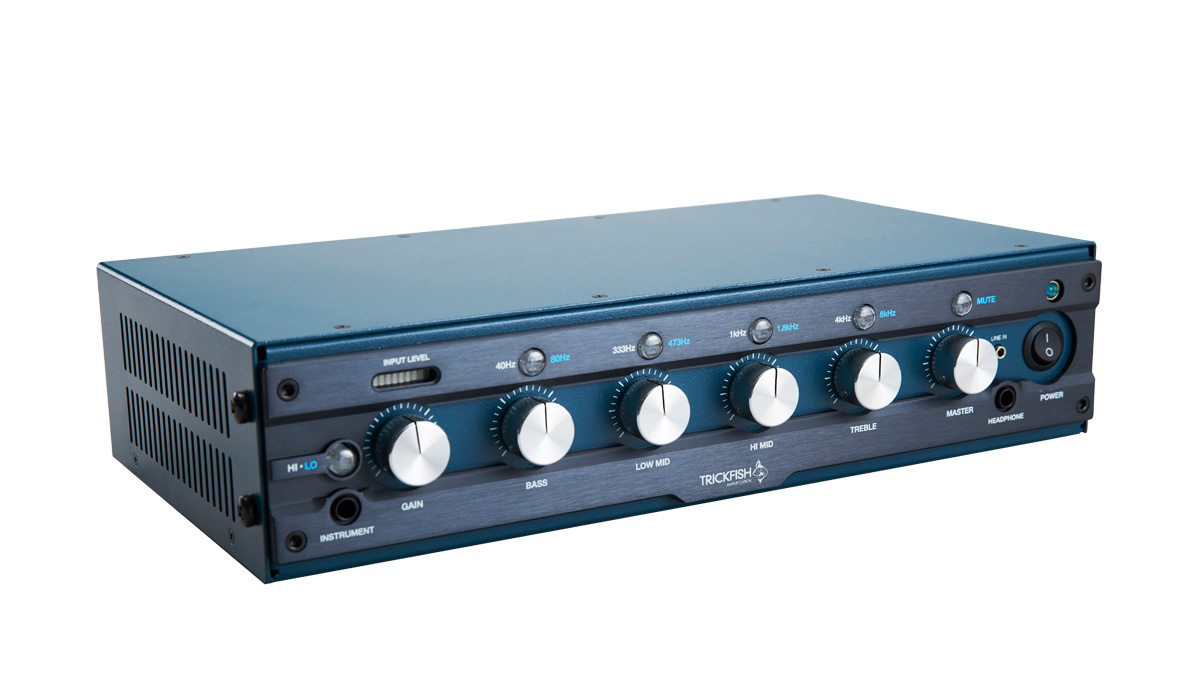
The cabinet will no doubt appeal to those players who like a one-cab solution – but to get the most from this amp, I suggest you consider a multi-cab setup so that the amp can push some air and breathe a little, or perhaps a multi-driver cabinet such as a 2x12 or 4x10. Having said that, this configuration is no shrinking violet and the levels on offer are impressive.
Bringing the high-frequency horn into play opens up all sorts of detail and added finesse to your sonic performance, should you require it. The signal remains tight and responsive throughout; pick playing sounds authoritative, while fingerstyle examples benefit from the punchy midrange and thick, rounded tones afforded by the Bass EQ.
You may find the 30Hz option a little too thick if you require articulate definition: again, this might be determined more by the bass you choose to use. There is a switchable mute option at the rear of the amp, but a footswitch is not included.
Conclusion
There’s no denying that this is impressive gear. If you’re looking to upgrade your amplification or you simply want to try something new, I can highly recommend these models, especially the amplifier. Audition and be impressed.
Specs
Trickfish Bullhead 1K amplifier head
Price: £1199 / $1,349
Made In: in USA
Power: 1000 watts @ 8/4 ohms
Features: Features 1/4” jack Input, Hi/Lo Input selector (+/-9dB), Gain (with Input Level indicator), Bass, Bass Frequency selector (40Hz/80hz), Low Mid, Low Mid Frequency selector (333Hz/473Hz), Hi Mid, Hi Mid Frequency selector (1kHz/1.8kHz), Treble, Treble Frequency selector (4kHz/8kHz), Master Volume, Mute switch, 3.5mm Aux In input, 1/4” jack Headphone output, 2 x Neutrik Speakon/Jack output sockets, FX Loop Series/Parallel switch, FX Loop Ground/Lift switch, 1/4” jack Send/Return sockets, 1/4-inch jack Tuner output socket, 1/4” jack Mute footswitch input, Direct out Level, Direct Out Pre/Post EQ selector, Balanced XLR DI output socket, Ground/Lift switch
Dimensions: 95mm / 3.7” (H) x 395mm / 15.5” (W) x 225mm / 8.9” (D)
Weight: 2.8 kg / 6.2 lb
Trickfish TF-112 speaker cabinet
Price: £699 / $799
Made In: in USA
Power: 300 watts @ 8 ohms
Impedance: 8 ohms
Frequency Response: 35Hz-16kHz
Speakers | 1 x 12” Eminence Neodymium speaker and 1 x HF driver 80 degree conical horn, with HF Level control
Connections: 2 x NL2 Neutrik Speakon/Jack sockets
Dimensions: 395mm / 15.5” (H) x 485mm / 19” (W) x 465mm / 18.3” (D)
Weight: 16.4 kg (36.2 lbs)
Contact: Trickfish
“Our goal is to stay at the forefront of amplification innovation”: How Seymour Duncan set out to create the ultimate bass amp solution by pushing its PowerStage lineup to greater heights
“It’s a game-changer for me”: Laney and Nathan East team up for a versatile signature bass head that ends a 40-year wait for the session legend
